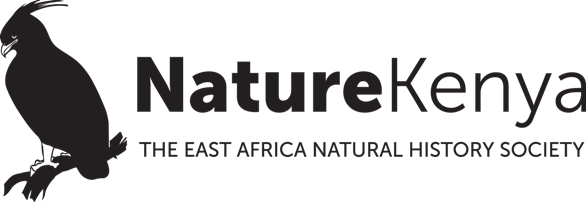We are living in extraordinary times. The COVID-19 pandemic is affecting everyone and everything everywhere. The Kenya Government has given directives to help reduce the spread. Nairobi, Kilifi, Mombasa and Kwale Counties are locked-in. Social distancing and face masks are a must. Gatherings are not allowed. Cashless business transactions are encouraged.
Nature Kenya management, staff and Executive Committee hope you all remain safe at this time of coronavirus danger. Nature Kenya is abiding by the government directives. Some activities have had to be postponed, while other work continues.
- Members will receive an electronic version of the Nature Net until further notice.
- The Membership office and shop is closed until further notice. Membership recruitment and renewal however continues. Visit http://naturekenya.org/support/membership/ and use cashless payment options such as M-Pesa or credit/debit cards. Your membership cards will be processed and mailed to you. As long as the main office remains open part of the time, members may also buy Arabuko-Sokoke honey. Pay by M-pesa and arrange to collect the honey.
- The 110th Annual General Meeting was postponed until further notice.
- The ‘Lungs for Kenya’ Charity Golf Tournament 2020 was re-scheduled for Friday, October 2nd, 2020 at the Karen Country Club.
- The EANHS library and museum galleries and sites remain closed until further notice.
- The Wednesday Morning Birdwalks, other field trips and monthly talks have been suspended until further notice. You will be informed as soon as they resume.
OFFICE OPERATIONS
At the Nature Kenya office, technical staff are optionally working from home, and support staff are on paid leave. With the Nairobi metropolitan area locked-in, staff cannot travel outside Nairobi. In April 2020, technical staff were busy with desktop tasks including writing donor reports and data analysis. Staff also provided comments to planning processes including the draft Nairobi National Park Management Plan and the control of desert locusts. With fewer field operations, staff were able to put more time into proposal writing targeting institutional donors and global philanthropists.
SITE ACTION DELIVERY
Field staff are present at site level: Yala Swamp, Mt Kenya, Taita Hills, Arabuko-Sokoke Forest, Dakatcha Woodland, Tana Delta, Maasai Mara and Amboseli landscapes. Staff in the field are liaising with technical staff in Nairobi to deliver site actions that do not require gatherings.
- In the Maasai Mara and Amboseli landscapes, 65 village vulture volunteers are coordinating with four Nature Kenya vulture liaison officers to monitor and report wildlife poisoning followed by site decontamination to prevent the poisoning of vultures that feed on carcasses.
- In the Tana Delta, staff and the Tana Delta Conservation Network (TDCN) are completing a Community Livelihoods and Learning centre.
- In Arabuko-Sokoke Forest three Community Forest Associations are completing ecological monitoring along 47 transects.
- In Dakatcha Woodland, a cutline along the borders of the 1,310-acre Clarke’s Weaver nature reserve purchased by Nature Kenya in 2019-2020 is underway.
- In Mt Kenya, CFAs were very active with tree planting during the rainy season, replacing dead trees and weeding. Kabaru and Hombe CFAs planted 40,000 seedlings of indigenous trees. Replacement of dead seedlings and weeding around seedlings was undertaken by CFAs in Chuka, Ruthumbi, Kabaru, Wanjerere, Ntimaka, Hombe and Njukiiri. A total of 15,546 new trees were planted to replace dead seedlings and weeding for 74,909 young trees was done.
- In Yala Swamp, the local people are completing a Community Conservation Areas Management Plan and construction of a bulking centre for nature based products in Siaya Town. Here 122 farmers have planted cereal crops; 16 farmers have vegetable nurseries (kales, black nightshade, coriander and capsicum); and 25 farmers have planted soya and vegetables. Some 11,352 indigenous tree seedlings were planted in the lower River Yala; 15ha of degraded papyrus planted in Yala Swamp; and a poultry rearing unit with capacity for 400 chickens constructed.
- Common bird monitoring was done by three Site Support Groups: Dakatcha Woodland Conservation Group, Yala Ecosystem SSG and Mt. Kenya Biodiversity Conservation Group.
The local empowerment unit is liaising with Site Support Groups (SSGs) to assess the impact of COVID-19 on sites and livelihoods. However, it is clear that COVID-19 will have a serious negative impact on species, sites and people.
COVID-19 EFFECTS
Already, Kipepeo, the flagship butterfly farming project adjacent to the Arabuko-Sokoke Forest, is seriously impacted. Since 1993, local people have been rearing butterfly pupae that are packaged and exported to overseas destinations for live displays in butterfly houses. The COVID-19 global pandemic has caused total closure of these butterfly houses. Exports have completely stopped. Some 800 households who depend on butterfly farming have lost a means of livelihoods. The Arabuko-Sokoke Forest is in danger. If you would like to help, please get in touch.
MOVING FORWARD
Nature Kenya will continue to update you on further developments. Threats remain to species and habitats, and conservation work must go on. Please continue to support Nature Kenya, and to observe and enjoy nature from wherever you are. For any clarification or to report your observation on species and sites, kindly contact us through telephone:
020 3537568, 0780 149200, 0751 624312, 0771 343138 or email: office@naturekenya.org
Dr. Paul Matiku,
Executive Director, Nature Kenya – the East Africa Natural History Society
